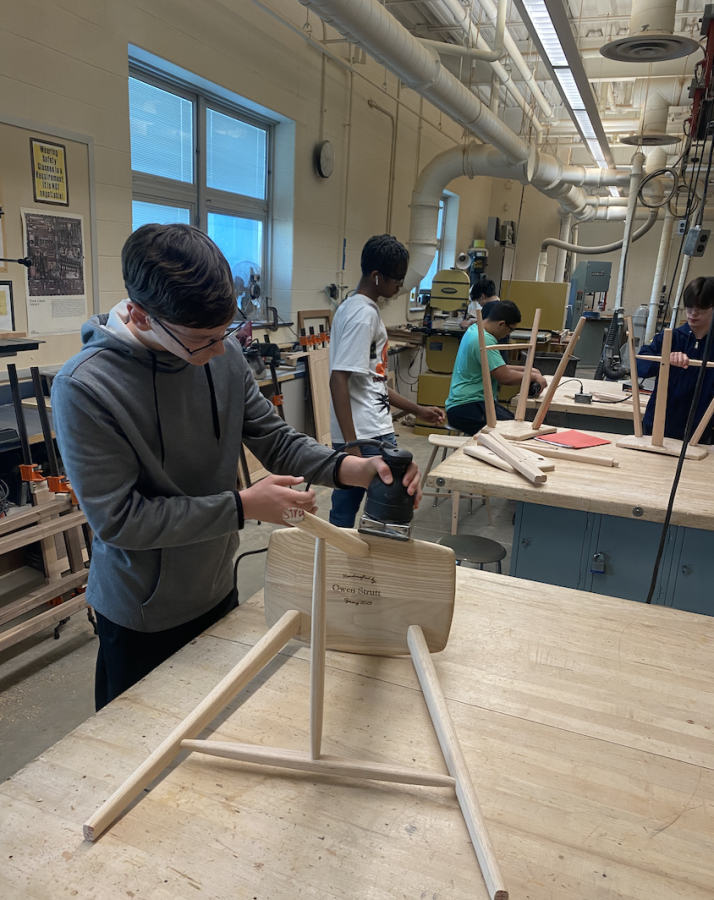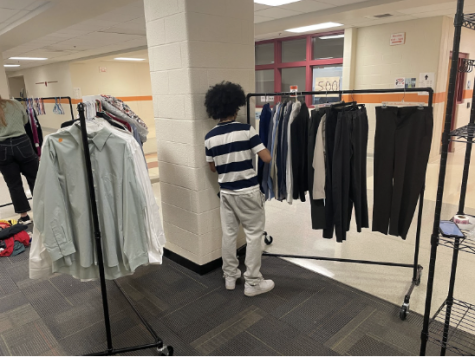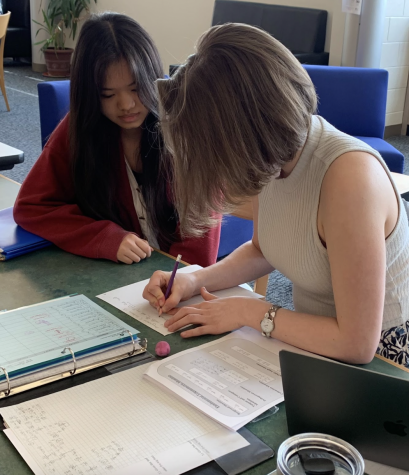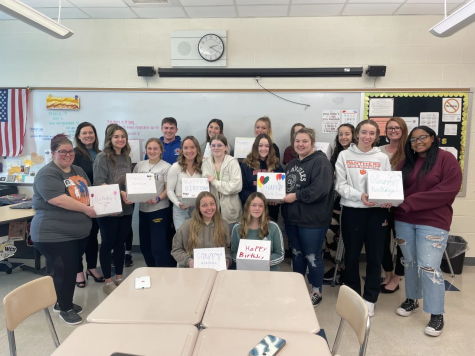Students acquire beneficial life skills in Process Engineering
Sophomore Owen Strutt making final touches on his custom three-legged stool.
May 9, 2023
When thinking about what a classroom looks like many might not envision loud machines, wood chips flying and students assembling stools. However, in Process Engineering 1 this would just be another normal class period.
Students in this course are taught the basics of assembling wooden parts together and using machines. They start off by building a beginner’s bench, then move onto a three-legged stool, bedside table and a small jewelry box.
“As we go through the projects, students should be working more independently as they acquire new skills,” said the course instructor Mr. Robert Ressel.
When assembling parts together, learners use an assortment of materials, machines and tools. Projects require them to be active thinkers by using different skills for each part of the assembly process.
“We work with table saws, joiners, arm saws, band saws and drill presses,” stated Ressel.
One of the main goals of this curriculum is to introduce learners to a better perception of product design and industrial production. Unlike most classes, students have the opportunity to deal with setbacks and make products in their own distinctive way.
“This class is unique because it’s not based on memorization. You have to be able to problem solve and make decisions on the best way to approach something. Everybody’s going to make mistakes. Sometimes you have to be creative in the way you deal with those mistakes,” Ressel said.
From a learning standpoint, students get to actively engage in activities in an open environment while picking up some of the basic strategies of process engineering.
“It’s a really good work environment,” commented sophomore Owen Strutt.
Participants always do their work with a smile on their faces; whether they are there to further master this field of education or just there to try something new, everyone is gaining something from this course.
“I took this type of class in middle school and I thought it was just so much fun, so I took it again,” said freshman Sadie Savercool, who then added, “This class is very loud, but it’s fun.”
Although Process Engineering focuses on building and hands-on material, students obtain other types of knowledge that can be helpful later in their careers.
“This class makes you better at math and fractions for sure. In essence, it really is a math class,” stated Ressel.
The class is described as a great program that helps students prepare for when they’re homeowners one day and want to improve their houses or those who are interested in carpentry, furniture building and improving skills with basic tools.
Contributors of this curriculum enjoy the work that they do on a daily basis and encourage others to join and take part. Process Engineering 1 is available for all grade levels to take. Upper-level courses Process Engineering 2 and 3 are available after passing the base-level class.








![“She [Walker] was the biggest advocate for any student,” said Basile.](https://mundismillmedia.com/wp-content/uploads/2023/05/Colorful-Watercolor-Note-Paper-with-Brush-Stroke-A4-Document-336x475.png)

